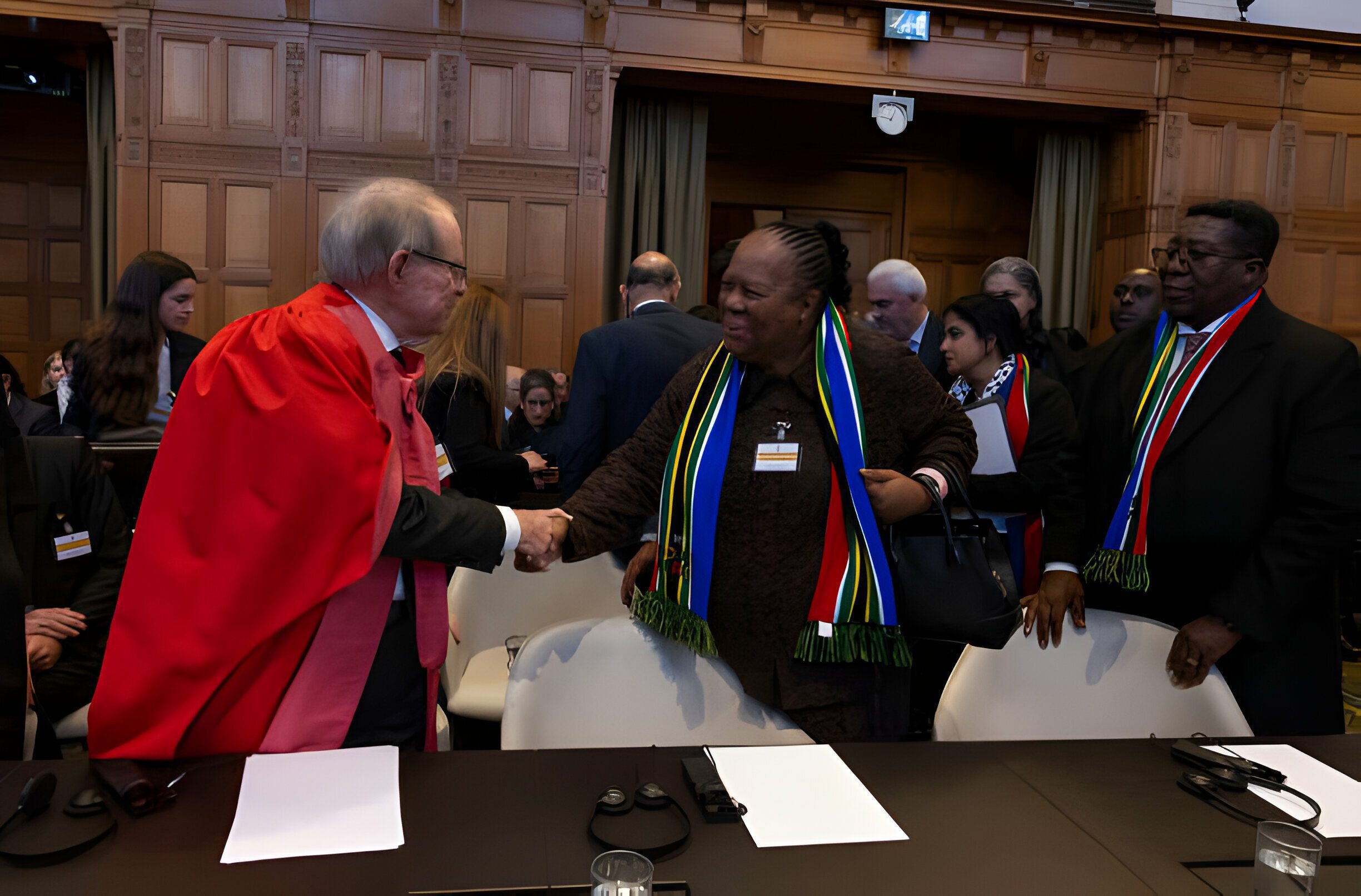The International Court of Justice (ICJ), in a significant move, has called upon Israel to exert all possible efforts to avert genocide and its encouragement. However, the court stopped short of mandating a ceasefire or directing Israel to cease its military campaign in Gaza. Joan Donoghue, the ICJ’s president, expressed the court’s deep concern about the ongoing human catastrophe and the persistent loss of life, highlighting the severity of the situation.
South Africa’s Allegations Against Israel
In a case initiated by South Africa against Israel at the ICJ this December, the hearings, which took place on January 11-12 in The Hague, revolved around allegations of Israel’s involvement in genocidal crimes in the Gaza Strip. The region has been engulfed in a brutal conflict for over three months. South Africa’s argument hinges on the assertion that Israel is contravening the UN Convention on Genocide. The allegations include acts of killing, causing severe physical and mental harm to Palestinians in Gaza, and creating living conditions designed to bring about their physical destruction.
Humanitarian Crisis in Gaza
As of January 23, the conflict in Gaza has resulted in the death of 25,700 individuals and injuries to 63,740, predominantly women and children. This situation has led to vast destruction and an unprecedented humanitarian crisis. Updates on the casualty figures have been hindered due to the collapse of telecommunication systems in the Strip.
Measures Issued by the ICJ
ICJ’s Emergency Directives to Israel
Joan Donoghue indicated that certain actions by Israel in Gaza, as brought forward by South Africa, appear to fall under the provisions of the UN’s Genocide Convention. Consequently, the court has declined Israel’s request to dismiss the case. The 17-judge panel at the ICJ has laid out six emergency measures. These include Israel taking all necessary steps to prevent violations of the Genocide Convention and ensuring that its military refrains from committing genocidal acts.
The court has also ordered Israel to curb and punish any direct and public incitement to commit genocide and to ensure the provision of essential services and humanitarian aid in Gaza. Palestinians are recognized as a protected group under the genocide convention.
Legal Obligations and Enforcement Challenges
While these decisions are legally binding, the ICJ lacks direct enforcement mechanisms. This aspect raises questions about the practical impact of these directives.
South Africa and International Response
South Africa’s Perspective
South Africa, having spearheaded this case, originally sought the court’s directive for Israel to immediately halt its military actions in Gaza. Although this specific demand was not met, the ruling is seen as a validation of Pretoria’s decision to pursue legal action and as a critical assessment of Israeli policies. Human rights lawyer Reed Brody remarked that the order, despite not fulfilling all of South Africa’s requests, exerts pressure on Israel to cease the collective punishment in Gaza and to facilitate humanitarian aid.
The South African Foreign Ministry views this decision as a decisive triumph for international law and a significant step in seeking justice for the Palestinian people. The ministry expressed hope that Israel would comply fully with the court’s order.
Israeli and Palestinian Reactions
Israeli Prime Minister Benjamin Netanyahu criticized the ruling, maintaining Israel’s commitment to international law and its right to self-defense. He rejected the allegations of genocide as false and offensive. Conversely, the Palestinian Authority (PA) welcomed the ICJ’s decision, emphasizing the importance of legal adherence by all states, including Israel.
Implications for a Ceasefire
Dr. Naledi Pandor, South Africa’s Minister of International Relations and Cooperation, suggested that the full implementation of the ICJ’s demands could inherently lead to a ceasefire and an end to the conflict.
In Summary
This evolving situation at the ICJ, with its legal and humanitarian implications, continues to draw global attention. The international community awaits the response and actions of the involved parties in light of the court’s directives, amid ongoing concerns for the people in the Gaza Strip.

















